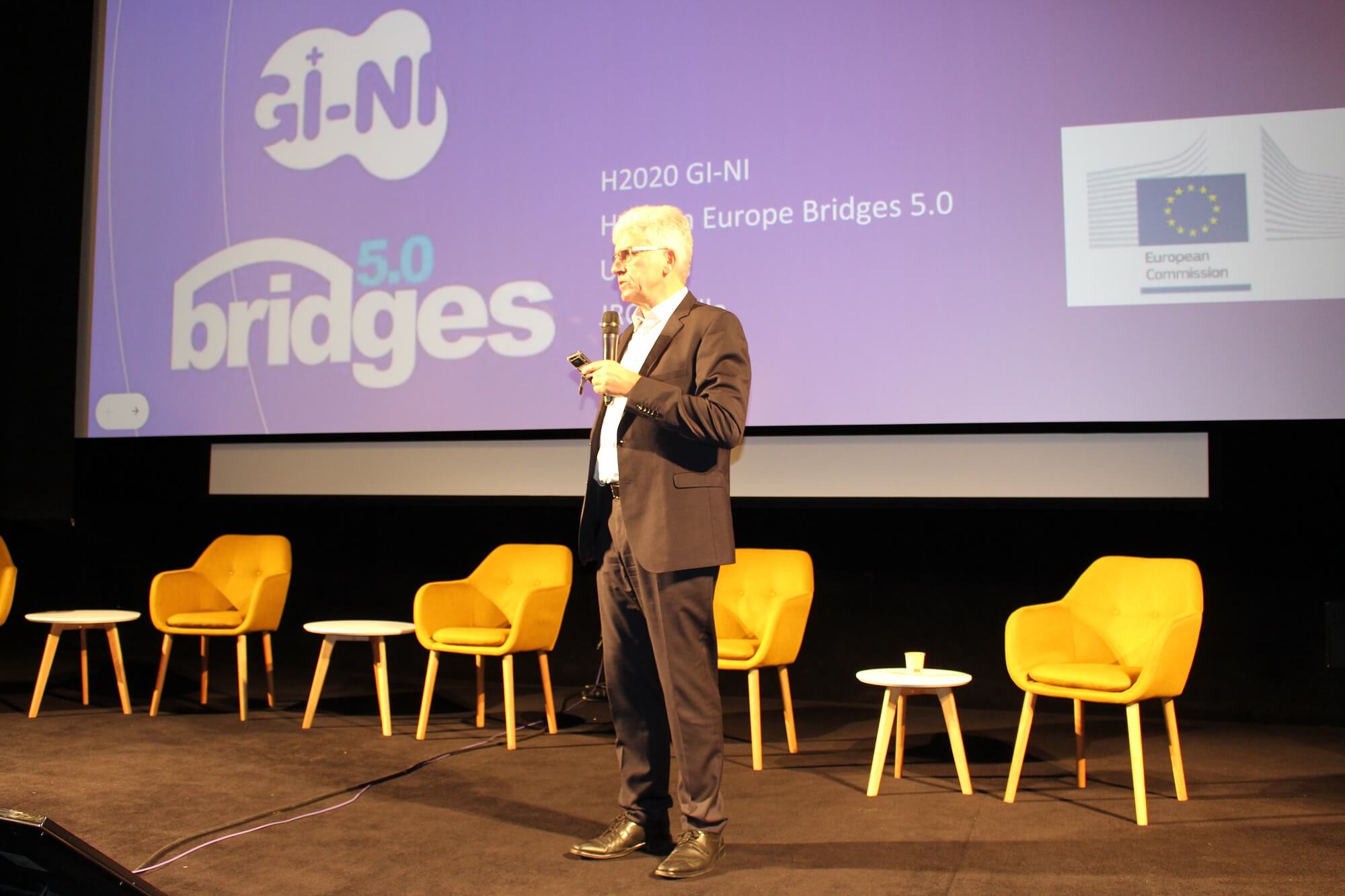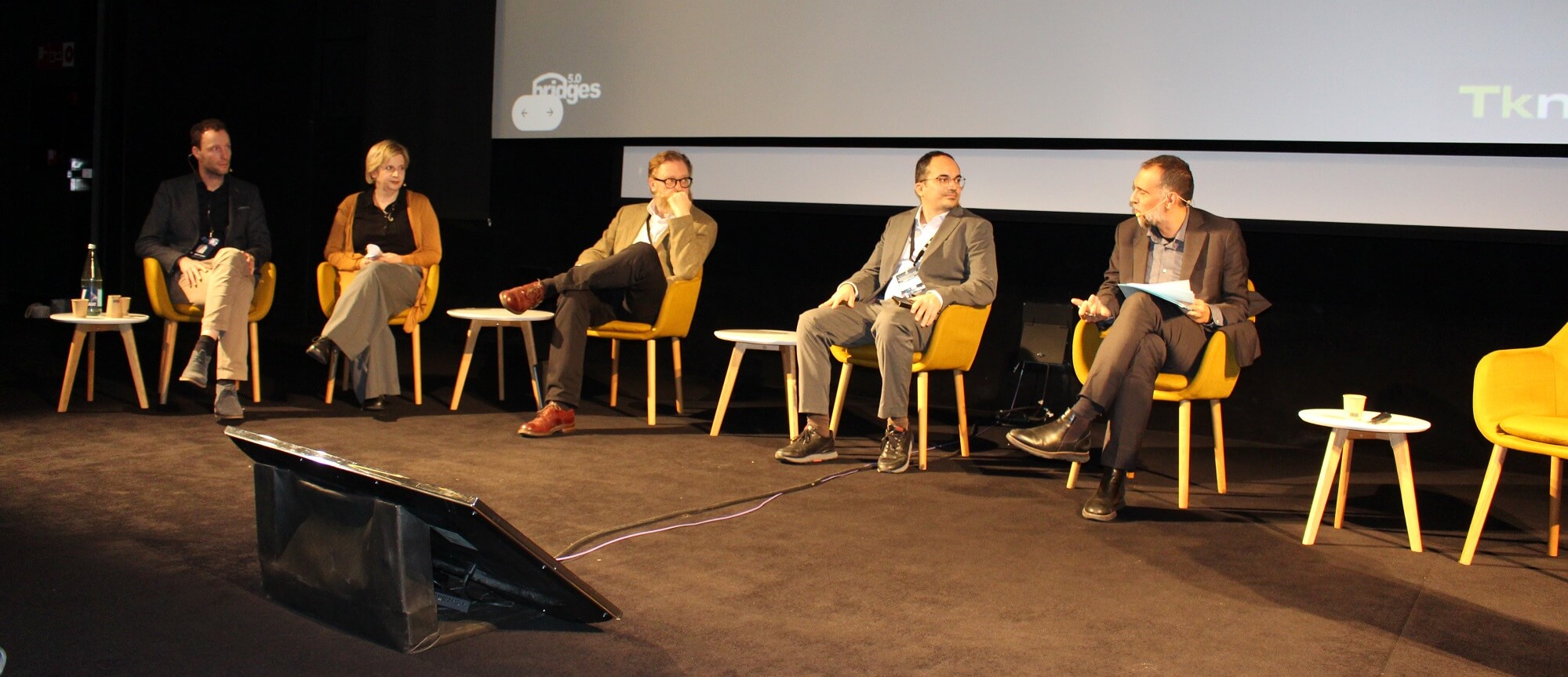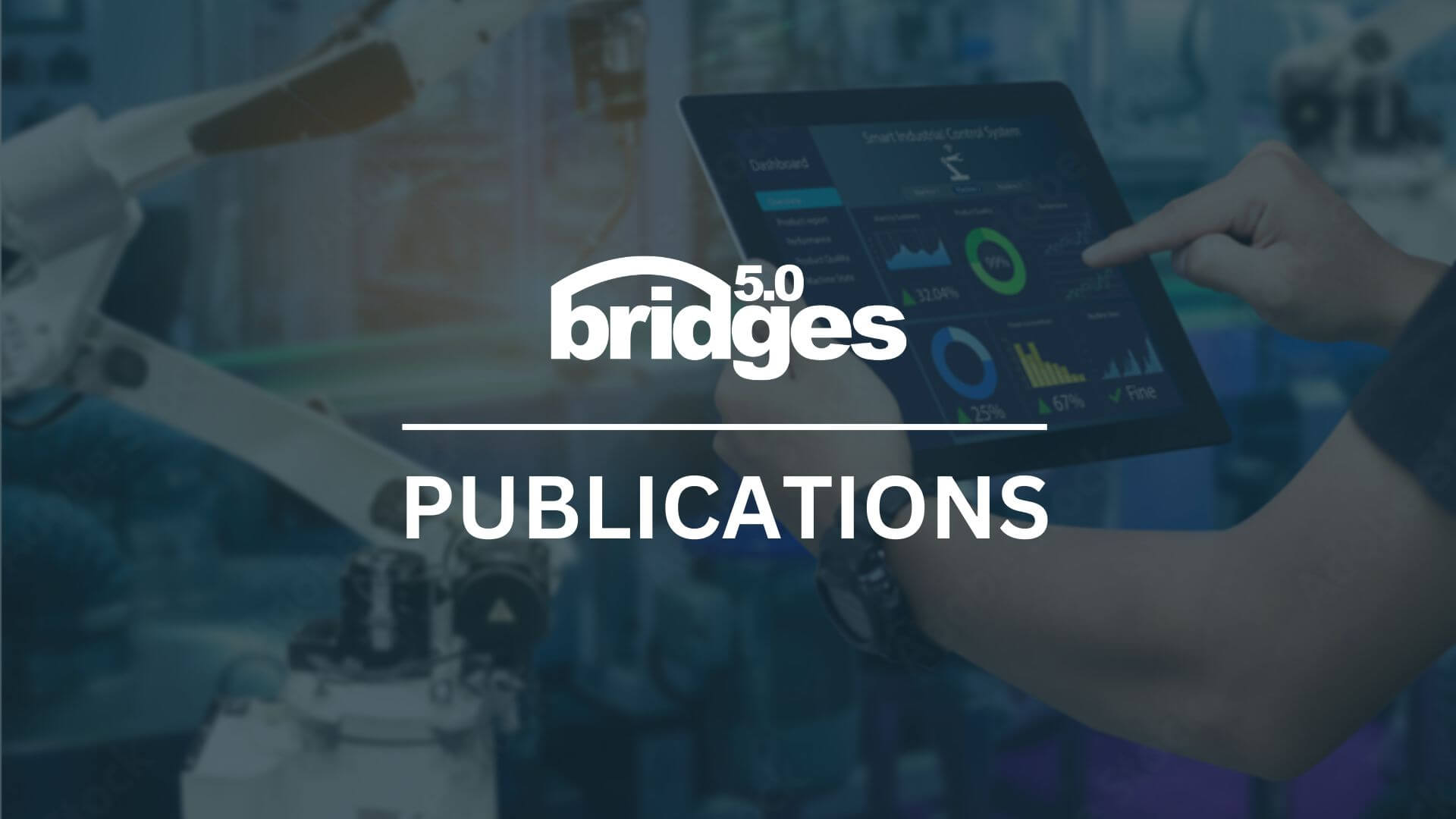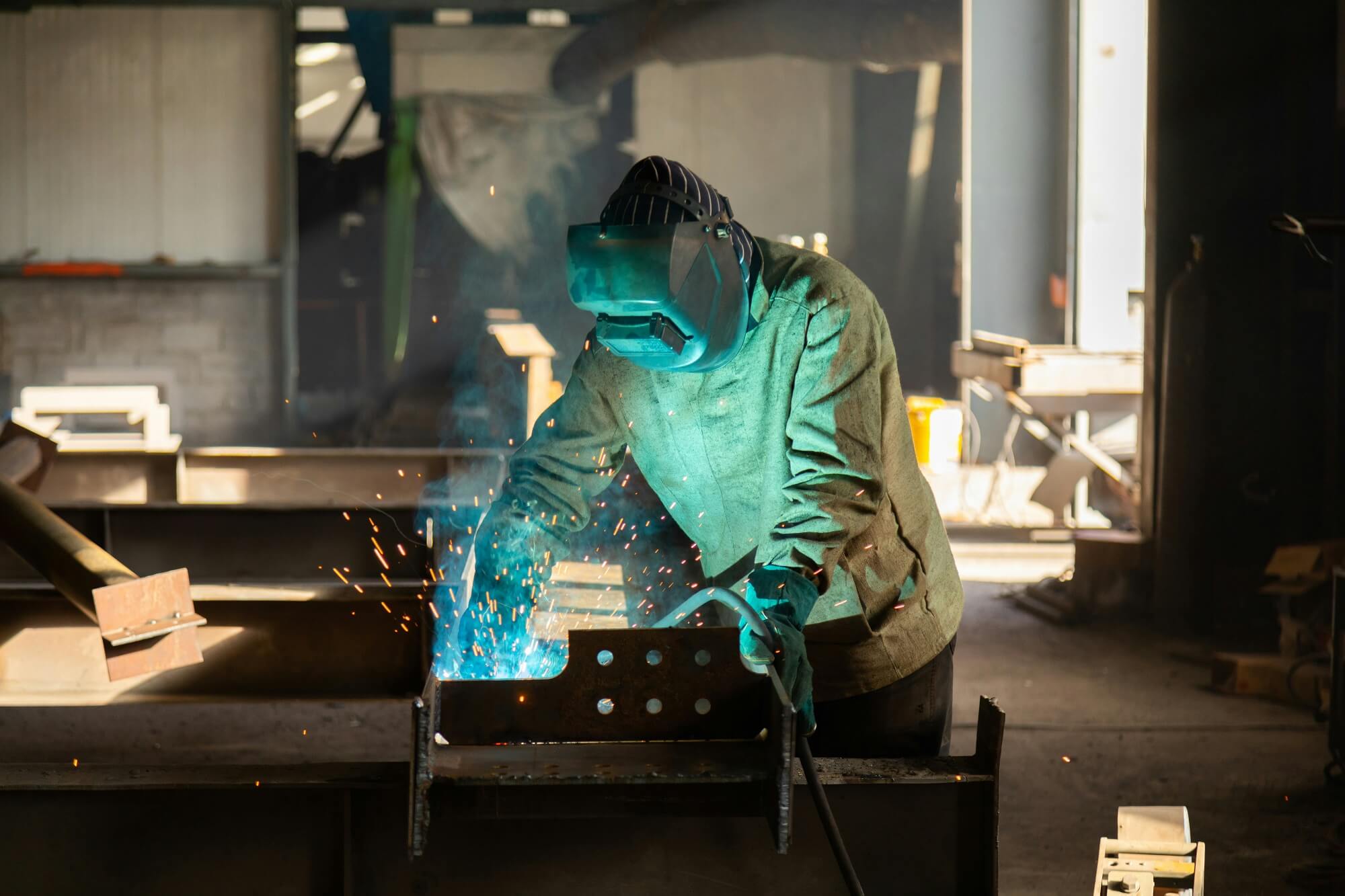
A discussion at the VET-conference in San Sebastian
The Bridges 5.0 Consortium was well represented at the “Advancing towards the Unimaginable” Summit on the future of VET, hosted by the Basque Government in Donostia/San Sebastián on 22nd/23rd November 2023. The programme included a strand entitled “From industry 4.0 to Industry 5.0”, led by representatives from the EU Bridges 5.0, GI-NI and Up-Skill projects.
The discussion involved Doris Schartinger (AIT & Bridges 5.0 project), Professor Chris Land (Professor of Work and Organization, Anglia Ruskin University & Up-Skill project), Gerben Hulsegge (TNO & GI-NI project), Carlos Torrecilla Salinas (JRC Sevilla), and Alexios Papacharalampopoulos (LMS & Bridges 5.0 project). Danielle Bruel (TNO) managed the discussion.
Introduction
In the evolving landscape of workforce development, the pursuit of human-centricity, resilience and sustainability has become a paramount objective for companies worldwide. These values have been promoted by the European Commission under the heading of Industry 5.0. Yet, as aspirations grow, critical questions arise: who holds the mantle for fostering the skills necessary for this transition, and how can the chasm between large enterprises and SMEs be overcome?
Skill Development Responsibility: A Diverse Tapestry
Different voices, different perspectives. Doris underscores the HR function’s integrative role, whereas Chris sheds light on SMEs’ reliance on workers themselves or communities of practice. Gerben points to human capital, while Alex emphasises the case-by-case nature of skill development. Carlos champions alliances with Vocational Education and Training (VET) entities for SMEs.
Investment and Bridging the Divide
The investment terrain echoes a dichotomy: leading companies pour resources into these skills while SMEs grapple with limitations. Chris advocates for SME networking, citing supply chain Collaborations as crucial, reminiscent of the Japanese model emphasising enduring relationships for innovation. Carlos echoes the need for stable frameworks and VET support, citing European Commission initiatives such as Industry 5.0 as pivotal.
Doris highlights the intrinsic focus of many SMEs on these skills but underscores their need for external ecosystem support. Alexios points towards measuring maturity, while Gerben emphasises funding and knowledge spillovers from core companies.
The Role of Education: A Transformative Engine
Education emerges as a linchpin in cultivating these skills. Alexios emphasises the inculcation of attitudes and mentalities, emphasising the role schools play in fostering practices like recycling. Carlos champions frameworks like the Digital and Green Competence Frameworks, reiterating education’s role as a lifelong competence driver.
Chris draws attention to the background of top managers, advocating for a shift in management education paradigms. He highlights the impact of specific MBA programs on managerial focus and urges a recalibration in educating managers and workers alike. Gerben echoes the call for a critical mindset in education, empowering students to voice their perspectives. Doris champions apprenticeships as foundational to SME strength, underscoring their pivotal role in skill cultivation.
Synthesising Perspectives: Navigating Forward
The amalgamation of these diverse viewpoints unveils a multifaceted approach needed to nurture human-centricity, resilience, and sustainability in the workforce. It underscores the imperative for:
- Holistic Engagement: Integrating HR functions, communities of practice, and alliances with VET entities for a comprehensive approach to skill development.
- Collaborative Ecosystems: Fostering collaborations within supply chains, advocating for stable frameworks, and knowledge exchange from leading companies to empower SMEs.
- Educational Reformation: Revamping management education, embedding critical thinking in pedagogy, and leveraging apprenticeships to fortify skill acquisition.
Conclusion: A Collective Journey
The journey toward a workforce adept in human-centricity, resilience, and sustainability isn’t a solitary endeavour. It’s a collective expedition where companies, educational institutions, policymakers, and individuals navigate in unison, bridging gaps and fostering an ecosystem where skills thrive and evolve. Embracing diversity in approaches, fortifying educational foundations, and fostering collaborative endeavours will be the bedrock of this transformative voyage.

Closing panel discussion
Related articles
December 17, 2025







